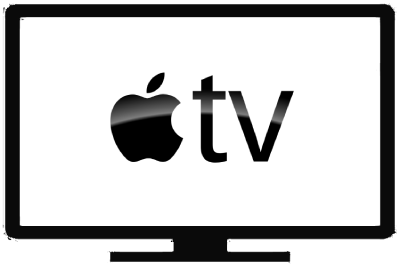The Universal Declaration of Human Rights was adopted by the United Nations 75 years ago this December, as was the Convention on the Prevention and Punishment of the Crime of Genocide. But that same year also saw the institutionalization of apartheid in South Africa, and the Palestine War or Nakba which displaced hundreds of thousands of Palestinian Arabs in the course of creating the state of Israel. What does it mean to commemorate this anniversary in a time of genocide and gross violation of human rights — particularly in the ongoing conflict between Israel and Hamas? Until recently, Craig Mokhiber was the director in the New York Office of the High Commissioner for Human Rights (OHCHR), where he had served since 1992. A specialist in international human rights law, policy and methodology, he worked through genocides against Tutsis in Rwanda, Muslims in Bosnia, Yazidis in Iraq, and Rohingya in Myanmar. In his resignation letter, sent October 28th this year, he wrote, “Once again, we are seeing a genocide unfolding before our eyes, and the organization that we serve appears powerless to stop it.” Both Israel and Hamas have now been accused of committing gross violations of human rights in their current conflict, including acts of genocide. But what exactly is genocide? And what is the responsibility of the world to stop it? In this timely episode, Laura and Mokhiber explore the promise of the Universal Declaration and ask how we can honor this historic achievement while also acknowledging the hypocrisies of 1948 — and now. What can be learned from the South African experience that might offer a way forward for peace with justice for Israelis and Palestinians? All that and a commentary from Laura on what it takes for us to recognize one another’s humanity.
“Israel is responsible for its own crimes. That responsibility does not extend to Jewish people around the world and certainly not to those who are standing up to say that this is not in their name.” – Craig Mokhiber
“We want to see justice for victims and accountability for perpetrators, but we want it to be done peacefully. And what are the peaceful means? We have legal action, we have political action, we have mass mobilizations, we have divestments, we have boycotts.” – Craig Mokhiber
THE LAURA FLANDERS SHOW
ISRAEL, HAMAS & UNIVERSAL HUMAN RIGHTS: FORMER UN OFFICIAL CRAIG MOKHIBER DESCRIBES PATH FORWARD
LAURA FLANDERS: The Universal Declaration of Human Rights turns 75 in December, 2023, as does the Convention on the Prevention and Punishment of the Crime of Genocide. These landmark documents for the first time recognized all humans as born free and equal in dignity and rights, and obligated all nations to prevent and punish atrocities like the Holocaust, which until then had no adequate description or legal definition. These were towering achievements, especially for nations that had just slaughtered millions of each others’ people in a century of colonial land grabs, two world wars, and a lingering experiment with fascism.
ELEANOR ROOSEVELT: We stand today at the threshold of a great event, both in the life of the United Nations and in the life of mankind. This Universal Declaration of Human Rights may well become the international Magna Carta of all men everywhere.
LAURA FLANDERS: It is easy to look back at that pinnacle of post-war consensus, conscience, and humanitarian commitment and see a painful slide to today, to a period that our guest this week has described as one of great anguish for the world. Resigning his post this October, this UN human rights official wrote, quote, “a genocide is unfolding before our eyes, and the organization that we serve appears powerless to stop it. We failed,” he wrote, “in our duty to meet the imperatives of prevention of mass atrocities, of protection of the vulnerable, and of accountability for perpetrators.” We’ll talk about all of that. But before we do, I would simply note that while none of the 58 states that were members of the UN back in 1948 voted against the adoption of the Universal Declaration of Human Rights, the Soviet Bloc countries did abstain, as did South Africa, which was right then institutionalizing racial apartheid. Even as states were voting to approve recognizing rights like rights to home and nation, hundreds of thousands of Palestinian Arabs were being expelled or fleeing their homes in the 1948 Palestinian War that accompanied the creation of the State of Israel. And finally, lest we forget, one of the very first accusations of genocide ever to be submitted to the United Nations after that convention went into effect targeted the US for its treatment of African Americans, and listed tens of thousands of wrongful executions and lynchings. That petition was rejected, and its signatories among them, Paul Robeson and W. E. B. Du Bois, the civil rights leaders were disparaged as communists. Suffice to say, the towering achievements we celebrate today were achievements, but they were always complicated. Works in progress, perhaps. So where does that leave us? That’s the question I’m happy to be about to discuss with my guest, Craig Mokhiber. Craig has investigated human rights in Palestine since the 1980s and lived in Gaza as a UN human rights advisor in the 1990s. He also worked through genocides against Tutsis in Rwanda, Muslims in Bosnia, Yazidis in Iraq, and Rohingya in Myanmar. He was the director in the New York Office of the High Commissioner for Human Rights, where he had served since 1992 until his resignation October 28th this year. Craig Mokhiber, welcome to the program. I’m very glad to have you with me.
CRAIG MOKHIBER: Well, first, thanks very much for having me here and for the opportunity to talk about what it means to be commemorating, not celebrating, I think, 75 years of the Universal Declaration of Human Rights. Of course, like many people around the world, foremost on my mind right now are the 2.3 million Palestinians who are interned, locked in, imprisoned in the Gaza Strip and being subjected to mass atrocities on a horrific and historic scale even as we speak.
LAURA FLANDERS: Well, we’ll come back to much of what you’ve raised just then, but before we do, who do you think of? I know nobody at the United Nations who doesn’t think about that 1948 moment and what it took and how that people got there and how the parties actually collaborated or didn’t and all the tussles that happened, and there were many. Do you have a thought about those people at those times?
CRAIG MOKHIBER: The adoption of the Universal Declaration of Human Rights was a universal exercise in the sense that the people who were responsible for it came from all regions of the world. Now, the United Nations in 1948 was not a very representative organization overall because much of the world was still under colonial domination. But you did have, you know, members of the UN Commission on Human Rights responsible for the drafting, chaired by Eleanor Roosevelt of the United States, but including people like Habib Malik from Lebanon, somebody from China, somebody from France, somebody from the UK. You had a Canadian head of the Human Rights Office. This was supposed to be a new chapter, one in which, you know, the principal job of governance was assuring freedom from fear and freedom from want for old people without discrimination, or as we say now, economic and social rights, civil and political rights, and equality for everybody. The blueprint is there in the Universal Declaration.
LAURA FLANDERS: There’s been all sorts of stories about what exactly happened with respect to you and the United Nations. So can you just clarify what really happened?
CRAIG MOKHIBER: These rumors that I was fired are false. I was not fired. As a matter of fact, the UN asked me to stay, and I said that I could not remain. What happened was in the month of February, there were a series of atrocities on the West Bank, including the pogrom that was carried out in the village of Huwara. And so at that moment, I was speaking very publicly, by the way, as I have on human rights violations committed in dozens of countries all around the world and every continent for 32 years at the United Nations. But in this particular case, there was pressure that was brought to bear on the UN in March from Western governments, from Israel lobby groups and others to try to silence the UN. And I was very disappointed to see some senior UN officials falling into that trap and allowing themselves to be silenced. And then worse, orders that came down for me to be silent at that moment in my public pronouncements, which was something I wasn’t ready to do. And so I indicated then that I would intend to be leaving the UN in the coming month. And of course after that, the situation on the ground in Palestine became much worse in October, as we saw this wholesale assault on the civilian population in Gaza. And it’s that moment that I penned my letter setting out with great detail what I thought was wrong with our approach to the situation in the Middle East, more generally, the trepidatious pronouncements of senior UN officials, and where I thought we needed to be going in order to actually address the realities of the situation on the ground.
LAURA FLANDERS: Now, the wholesale assault on Gaza that you just referred to followed the horrendous attack of October 7th. While this word genocide is being debated, would you have called the attack by Hamas genocidal? How do you define it?
CRAIG MOKHIBER: A very good question because it is a very specific crime. It’s clear that Hamas committed war crimes on October the 7th, including the targeting of civilians on the one hand and taking of hostages on the other hand. And any Hamas operative or commander who is responsible for those needs to be held accountable. We need a full-blown investigation to make sure that they are. The crime of genocide is something which is very specific. And this is why I rang the alarm bells on Israel’s perpetrating genocide in Gaza because I had said that in all of my decades as a human rights lawyer and working at the UN, I had never seen such a clear case. And that’s because the Genocide Convention of the UN lays out with specificity the kinds of acts that qualify as genocide and the accompanying mens rea, the accompanying intent that needs to be there as well. Now, the acts are things like mass killings. No doubt about that. We have seen thousands upon thousands of civilians slaughtered in Gaza. They include inflicting harm on the civilian population, and we’ve seen plenty of that serious mental and physical harm carried out. But they also include this very specific act that refers to imposing conditions of life that are designed to bring out the destruction of a group in whole or in part. And here we had seen an explicit policy on the part of Israel over the course of decades with the closure and siege of the Gaza Strip, which is specifically designed to deny the people of Gaza healthcare and housing and water and sanitation and adequate food and infrastructure and construction and freedom of movement, all of the things required for decent life, as a policy, denied to the people of Gaza. And so this is historically one of the clearest cases of that particular violation of the Genocide Convention. But most unique here is the degree to which evidence of genocidal intent, which is required for the crime of genocide, has been expressed publicly and on the record by senior Israeli officials in the political leadership and in the military.
LAURA FLANDERS: For example, what would you cite?
CRAIG MOKHIBER: Starting with the Prime Minister who invoked the biblical verse about Amalek, which calls for the destruction of the entire population, sparing none as it goes, and killing all men, women, children, suckling babies, and livestock. You’ve got the Energy Minister talking specifically about cutting off all energy, fuel, and water to make the people suffer there. And there are dozens. There’s a catalog being collected now, which I’m told exceeds 100 statements. And this is very rare, Laura, because, you know, normally you have to dig through dusty government archives to find evidence of intent in genocide. Here, the climate of impunity has stood for so long that senior Israeli leaders are confident in stating these things outright and publicly.
LAURA FLANDERS: The point you’re making is that these are senior leaders, these are people with the ability and the shown capacity to implement some of these things. The closure of Gaza from water and food and energy, for example, happened. Talk just for one more moment about Hamas because there have been those who look to the Hamas, you know, original documents declaring its intent to eliminate the, you know, “Israeli entity,” as they call it. These were amended in 2017 to distinguish between Jewish people and the state, but just to help people who are embedded in this debate where they live with their friends, with their relations, perhaps, do we see genocidal intent on both sides?
CRAIG MOKHIBER: One of the other elements that’s necessary for a finding of genocide is the capacity to carry it out because people will make all sorts of horrible claims when they are in combat with another group. But the issue of capacity is necessary in genocide analysis. And here we see very clearly that, you know, you say these individuals as senior officials have the capacity, but the State of Israel has that capacity. They’ve constructed a powerful apparatus of repression, which has been firmly entrenched in all of Palestine and Israel. That includes military occupation and assault forces, abusive police contingents, ruthless intelligence agencies, but also physical things like walls and fences and barbed wire, advanced monitoring and surveillance technologies, drones, autonomous weapons as well as, you know, the arming of violent settlers and setting up a system of oppressive laws, apartheid in place. That means that Palestinians are entirely subjugated every day, all Palestinians forcibly contained and interned. They’re largely defensive. They’re subject to regular attacks, both by the Israeli military and by violent Israeli settlers. So in other words, the capacity, the means to carry out the crime are clearly in the hands of Israel. And we have to say that since October, we’ve seen all of those means deployed against the civilian population of Gaza and the West Bank.
LAURA FLANDERS: One of the things that your resignation letter pointed out was that there is a role for the world to step in. What would you have had us as a world do October 8th?
CRAIG MOKHIBER: It is impossible to talk about what needs to be done in terms of human rights without going to the very root causes of the problem. In fact, this has been the failure of the international community. They have focused for more than 30 years now on solutions that don’t address the root causes. And the root causes are settler colonialism. They are apartheid, they are persecution, they are ethnonationalism, right? These are the things that have subjected Palestinians, now for 75 years, to an experience that is framed by torture, arbitrary arrest and detention, institutionalized racial discrimination, collective punishment, eviction from their homes, denial of all economic and social rights, denial of free movement, right? That is the reality of being a Palestinian anywhere in historic Palestine and Israel. And so until you address those root causes, you’re not going to get a resolution to the conflict and you’re not going to get to the state of human rights that’s described in the Universal Declaration. The international community, so described, has failed in preventing genocide on several occasions. You mentioned some of those that happened during my service at the UN, but the difference for Western states is that for those genocides, take Rwanda for example, the sin of the Western states was that they did nothing to stop it. That’s bad enough because, you know, countries like the United States have an obligation under international law. They have an obligation under the Geneva Conventions not just to respect the Geneva Conventions but to ensure respect vis-a-vis other states over whom they have influence. And Israel, a very obvious case here where the US has influence. But also a duty of prevention, as you say, under the Genocide Convention. That was the failure in previous genocides. In this one, it’s much, much worse because not only are Western states like the US and the UK standing by while this happens, they are actively participating by providing, for example, military support, economic support, intelligence support, diplomatic cover, even the use of the veto to prevent a ceasefire, and they’re doing this while the atrocities are taking place in real time.
LAURA FLANDERS: I want to come back to the United Nations now because as you know, I think, as someone familiar with this program, we try to focus on like, what can be done about this situation? And I think we have, in the media, made what is happening between Israel and the Palestinians a problem of Arabs and Jews. And we have seen a massive increase in both Islamophobia and anti-Semitism as a result where what I see in what happened in 1948 and what’s happened since is a complicity amongst many nations to allow an ongoing violation wrong to fester, unresolved.
CRAIG MOKHIBER: Israel’s attempt and some media attempts to portray this as something between Arab and Jews is very much belied by the very principled and courageous stand that many Jewish sisters and brothers are taking across the United States, across Europe, even in Israel, to say that this is not in their name and to defend Palestinian human rights and to ask for an end of apartheid and end of this endless spiral of horror and of violence. And I think that’s really important because it kind of strips away the lie that somehow Israel is representing Jewish people when it commits these atrocities. Israel is responsible for its own crimes, and that responsibility does not extend to Jewish people around the world and certainly not to those who are standing up to say that this is not in their name.
LAURA FLANDERS: We just saw the burial of Rosalynn Carter, whose husband was the first and last president, I think, Jimmy Carter, to identify the Israeli settlements as illegal and to write in his 2006 book of Israel as an apartheid state, “Peace Not Apartheid.” At the time, he was roundly condemned even though he was a former president. Today, there are many people who still feel nervous of raising this question, but fewer, it seems to me. It does feel to me as if this discussion is developing.
CRAIG MOKHIBER: Oh, I think you’re right. There is a shift underway here. What gives me hope, Laura, is that, you know, at risk of being slandered and smeared, at risk of being beaten and arrested, at risk of losing their jobs or their positions in university, you’re seeing people stand up across the United States and Canada and Western Europe and the UK and saying, “No, we will not be silent.” I mean, I think that the unprecedented effort at repression trying to silence voices speaking up against these Israeli atrocities that we have been witnessing across the US and across Europe is because they know that people are just not having it. And I mean, some of the most beautiful things I’ve witnessed in my career in human rights has been, you know, the takeover of Grand Central Station and the Statue of Liberty by Jewish Voice for Peace and IfNotNow, the massive demonstrations in every European capital and in cities across the United States. Something is giving way here. And it’s amazing because you certainly aren’t seeing it in Western corporate media. You’re not hearing it from the mouths of politicians, and you’re not hearing it in a principled way from international institutions.
LAURA FLANDERS: South Africa for decades was an apartheid state. It was able to change, even though the white minority believed that they were upholding a precious tradition unique in the world, and they had nowhere else to go and that their specific identity was under threat. They were able to change. Not as much as many people would like, but they have changed. What would have to change inside Israel? You don’t have to do away with the State of Israel. What would have to change inside Israel to move from the state of play at present to the kind of multiracial democracy that could have been born, perhaps, in 1948 if pushed in that direction?
CRAIG MOKHIBER: Well, of course South Africa does provide the model because you’ll remember that everything I just said about the failure or the collusion, really, of Western states, Western governments and others also applied to South Africa up until the 1980s. And what turned it around was civil society, was movements, was churches who came together and who just didn’t let go and continued to advocate for an end to apartheid and for a democratic secular state in South Africa. It’s the same thing here. The fact that we, in our conversations, avoid demanding the same thing in Israel I think points to a very deeply rooted racism in our own societies in the West and an insensitivity to what it means to suffer under settler colonialism. There’s no need to do away with Israel. There is a need to do away with apartheid, and that starts really with accountability, and there are lots of peaceful ways to do that. You know, one of the great tragedies is that the Palestinian people have been denied any redress. So if they pick up arms, they’re terrorists even though they have a right under international law to pick up arms to resist their colonization and their foreign domination. If they use legal methods in courts and tribunals, they are attacked at every step as being, you know, unhelpful to the peace process. If they participate in boycott and divestment, they’re accused of being anti-Semitic. If they have a Gandhi-style march, like the Great March of Return inside the cage of Gaza, they’re cut down in their thousands by Israeli snipers. They need solidarity from the world. They are besieged, literally and figuratively. And if, like in South African apartheid, we stand together and we make sure that Israel is isolated in the ways that it needs to be isolated and is held accountable in courts of law and then through peaceful protest and so on, I think we can see a change over time that will be to the benefit of Israelis and Palestinians-
LAURA FLANDERS: Well, I was going to add, because as you say isolate Israel, I hear people clutching their heart that as Jews in the world, they’ve been isolated, they’ve been marginalized, they’re afraid. They feel Israel is all they’ve got.
CRAIG MOKHIBER: Well, I think we need to stand in solidarity with Jews who are fighting against this system. I think that’s not where the line is drawn. Nobody’s asking for Israel to disappear. What we’re asking, as I said, is for apartheid to disappear. And you know, you can’t do that without holding accountable all perpetrators of war crimes, crimes against humanity regardless of who they are and in the name of all victims. You know, we want to see justice for victims and accountability for perpetrators, but we want it to be done peacefully. And what are the peaceful means? We have legal action, we have political action, we have mass mobilizations, we have divestments, we have boycotts. All of these things were tried in South Africa, not out of hatred for white people, right? But out of love for the oppressed Black people in South Africa and Brown people in South Africa. And unless we are racist, you know, we have to say that the same rights apply to Palestinians as applied to South Africans.
LAURA FLANDERS: You still believe in the tools of the UN Declaration, the Convention and the mechanism, perhaps, of the United Nations, is that right?
CRAIG MOKHIBER: I do. I think we need a United Nations. I think we need international law. I think we need human rights treaties and humanitarian law treaties and international criminal law. My frustration is with the institutions. You know, the International Criminal Court has been horrendous in its biased approach to international law, always ready to hold accountable weak states of the South and to indict Africans, but has been dragging its feet on indicting Israeli perpetrators for years now because of Western pressure and because of some of its own biases. That has to be fixed. Don’t get rid of the court. Fix the court. Make sure it’s actually a universal court that applies to all perpetrators and all victims. If you have an international rule of law, it means that friend and foe alike have to be bound by the rules of humanitarian law, human rights law, international criminal law, and so on. That’s not the world we’re living in now.
LAURA FLANDERS: I appreciate your work and your words, Craig Mokhiber. Really, it’s been a honor to have you with us.
CRAIG MOKHIBER: Thank you so much for having me. I appreciate it.
LAURA FLANDERS: A young trans activist on this program recently described how when she was testifying against a piece of anti-trans legislation at her local school board, she made a point of repeating that she was human. “They’re never going to respect my human rights,” she said, “if they don’t first see me as a human being.” I thought about that in relation to the developing story out of Burlington, Vermont about the three young men wearing keffiyeh scarves who were shot by a stranger from his porch. Apparently he perceived them to be Arab or Palestinian or at any rate, not quite human. The parents of those three young men gave us details about their sons so that we would recognize their humanity because they said otherwise they feared we might not. They gave us not just their names, Hisham Awartani, Kinnan Abdalhamid, Tahseen Ahmad, but also the universities they attended. Brown University in Rhode Island, Haverford College in Pennsylvania, Trinity College in Connecticut, and told us about the subjects they were studying, math and archeology, biology and medicine. One had just certified as an EMT. Was that enough for you to recognize their humanity or did you need the extra detail that these three strapping young men had just attended the birthday party of two eight-year-old cousins? What’s it take for one of us to recognize another of us as human? I’m going to be thinking about that and practicing. Clearly, it takes more work than we think. You can find my full uncut conversation with Craig Mokhiber through a subscription to our free podcast or the information is at our website. In the meantime, stay kind, stay curious, keep practicing. For “The Laura Flanders Show,” I’m Laura, and thanks.
For more on this episode and other forward-thinking content, subscribe to our free newsletter for updates, my commentaries, and our full uncut conversations. We also have a podcast. It’s all at lauraflanders.org.
• GRITtv: Roundtable on Racism: Will the UN Report Make A Difference?: Craig Mokhiber & Damon Hewitt, Watch
• UN General Assembly resolution 260 A (III) of 9 December 1948 – Convention on the Prevention and Punishment of the Crime of Genocide, Read Here
• The Weaponization of Human Rights at the Human Rights Council, by Alfred De Zayas, Counter Punch, Read Here
• The Dangerous History Behind Netanyahu’s Amalek Rhetoric, by Noah Lanard, November 3, 2023, Mother Jones, Read Here
“Funk 4 Peace” by Fort Knox Five from their album Radio Free DC courtesy of Fort Know Recordings. Listen & Learn More Here
The Laura Flanders Show is committed to making our programming, website and social media as accessible as possible to everyone, including those with visual, hearing, cognitive and motor impairments. We’re constantly working towards improving the accessibility of our content to ensure we provide equal access to all. If you would like to request accessibility-related assistance, report any accessibility problems, or request any information in accessible alternative formats, please contact us.
















